Most bitches have their first heat between six and ten months of age
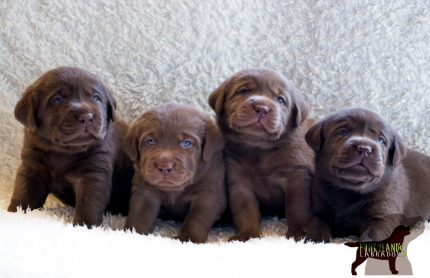
HEAT
The sexual cycle in a bitch can be divided into four periods: preestrus, estrus, diestrus, and the anestrus. Most bitches have their first heat between six and ten months of age, and this process occurs at six to eight months. The heat itself usually lasts 21 days, and the cycle length and intervals between heats can also vary. Signs are altered behavior (restlessness, poor appetite or greed, disobedience), swollen pubis, bloody mucous vaginal discharge.
Based on the value of progesterone in the blood plasma, we can estimate the time of ovulation and thus the most favorable time of mating. Once ovulation is determined, we mate 48-72 hours later – that’s when the eggs mature and are ready for fertilization.
Pregnancy is confirmed by ultrasound – most ideally 25 days after ovulation. On average, pregnancy lasts 63 days.
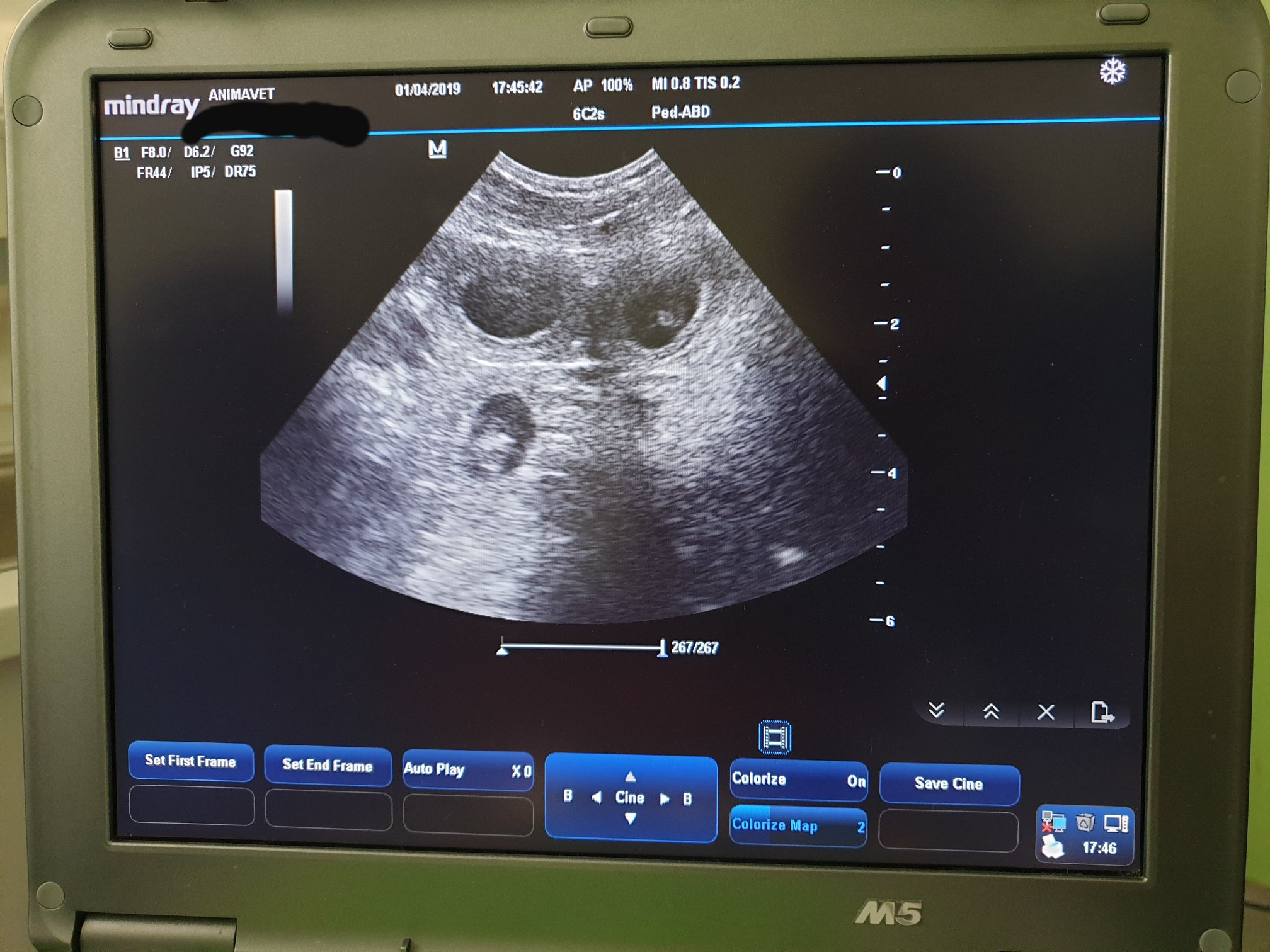
Only preparations (for external and internal parasites) that are safe and indicated for use in pregnant bitches should be used during pregnancy. Arava has a full range of products that can be used during pregnancy. When a bitch gives birth, it is advisable to bathe her. It is necessary to use a gentle shampoo that will not irritate the skin. A drop in body temperature is one of the most reliable signs of impending birth. Normal body temperature is 38-39 degrees. Approximately 24 hours before delivery, the temperature drops below 37 ° C.
The bitches become restless, start digging around the hatch, want to go out several times, …
PHASES OF BIRTH
There are 3 stages. 1 phase is the longest and is intended for the preparation of birth – it is all about opening the cervix. The bitch may feel uncomfortable, look around the belly, may wheeze, tear and reattach the bed, shake, occasionally vomit, and be anorexic. Towards the end of this phase, uterine contractions intensify in both strength and frequency. Contractions are already visible to the human eye.
The second stage involves squeezing the fetus. The puppy is born in a bubble, which the bitch usually removes by licking. If she does not do this herself, we help her by removing the bubble from the puppy’s nose and mouth so that he can breathe. The bitch will bite the umbilical cord on her own and start licking the puppy, thus encouraging him to breathe on his own.
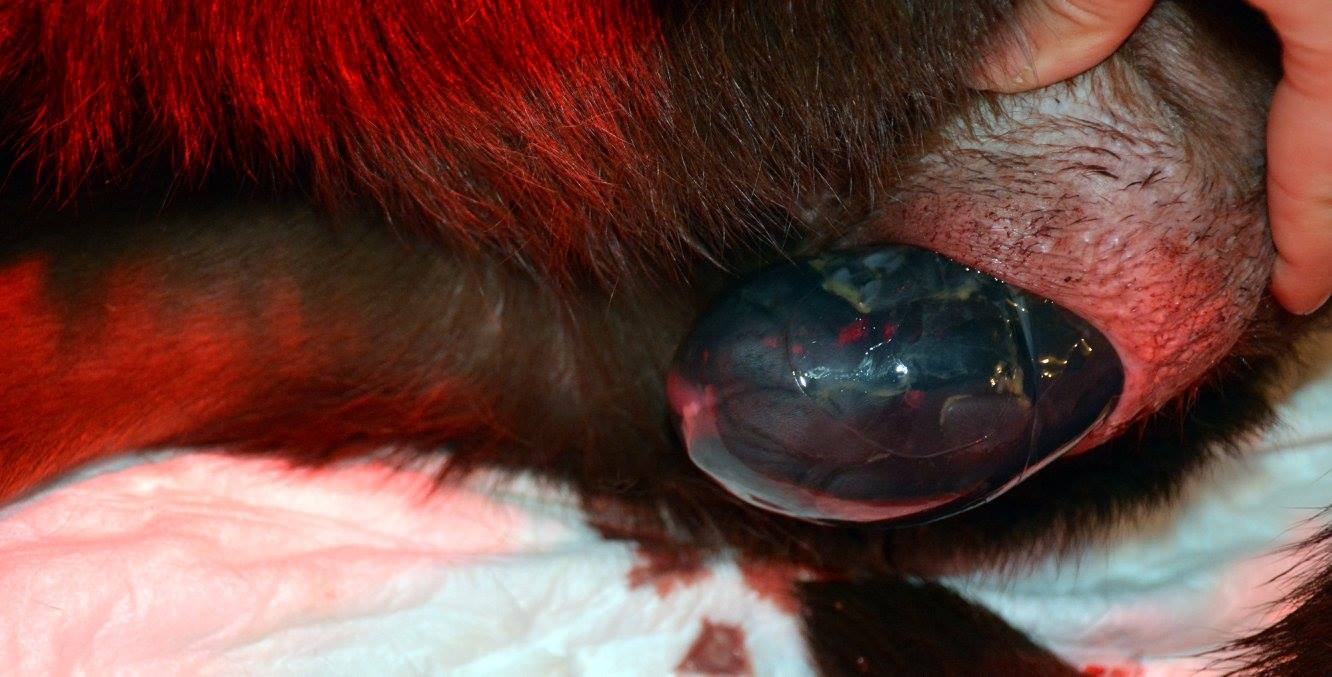
In stage 3, placentas are expelled. Sometimes it happens that two or three puppies are born and only then the placenta is squeezed out.
Puppies are not able to regulate body temperature in the first weeks, so the warmth of the mother is important. The room where the puppies are, should be adequately heated. Most often we use heating lamps that heat only the whelping area. This gives a bitch a chance, she can go out if she is too hot.
Puppies open their eyes around 14 days of age. At first they see only the outlines, but later their vision sharpens.
Somewhere around 3 weeks of age (depending on the size of the litter) we start introducing them to solid food.
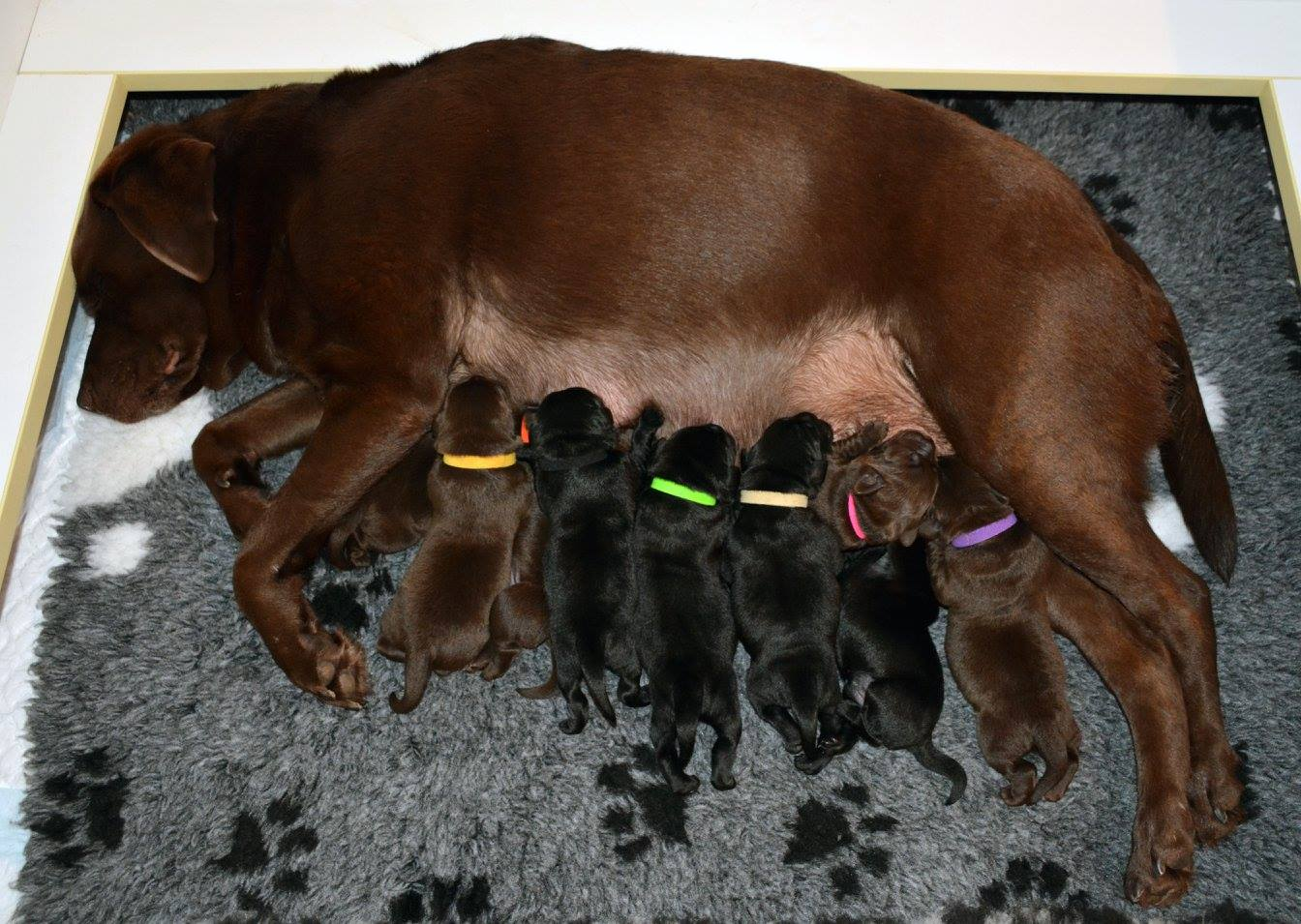
Puppies (and mother) need to be dewormed every 2 weeks (i.e. at 2, 4, 6 and 8 weeks of age). Later, before each vaccination, adult dogs 3-4 times a year. If they live in a household with small children or a pregnant woman, deworming is advised once a month.
Sometime between 7 and 8 weeks of age, the puppies are supposed to be chipped and vaccinated against infectious diseases for the first time.
When they are 8 weeks old, they are ready to go to a new home. Some breeders still bathe them before leaving – of course it is necessary to use a shampoo that is so mild that it is also suitable for puppies. Aravin Tearless shampoo is ideal for this.
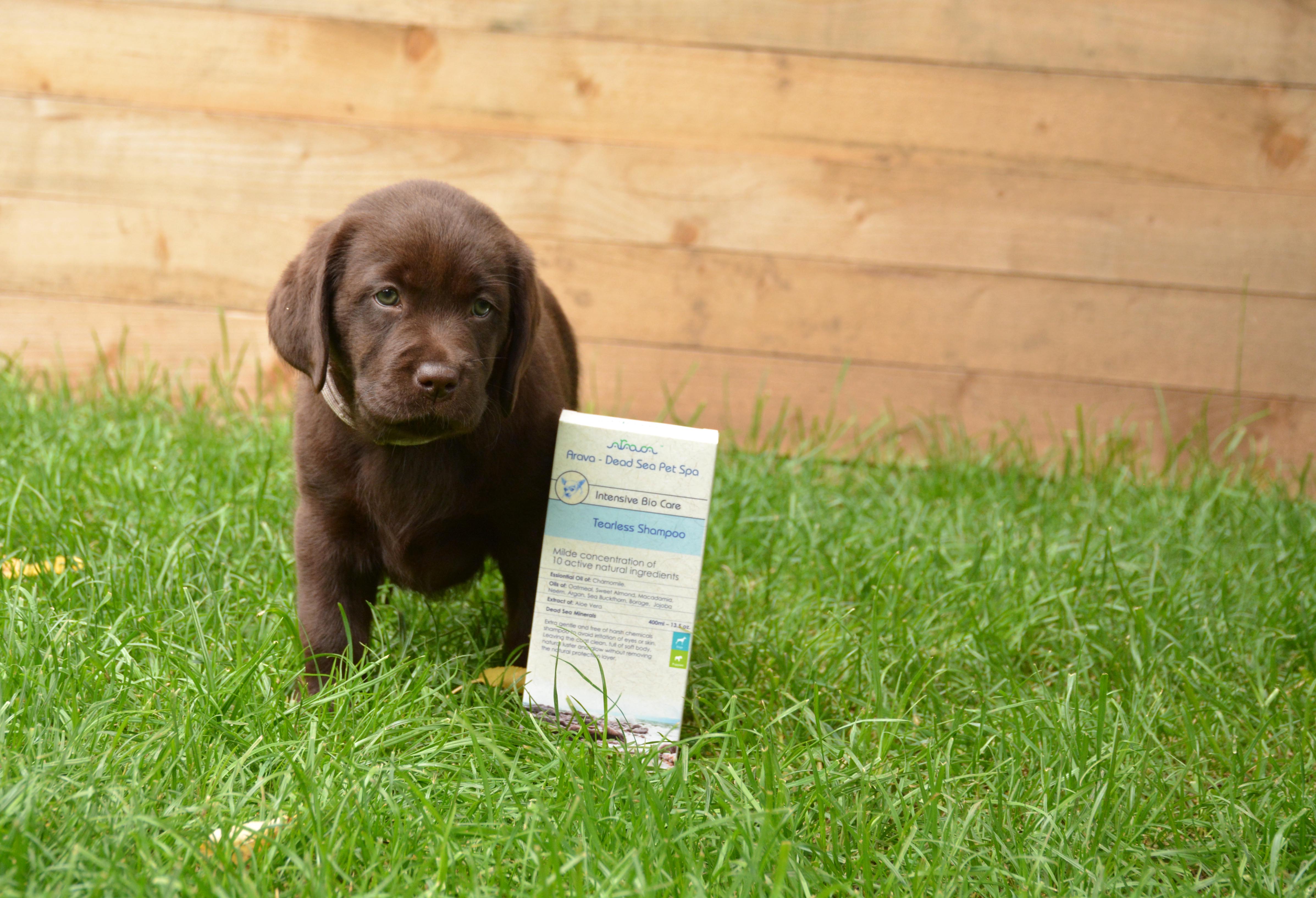
ARRIVAL IN THE NEW HOME
When a puppy changes environment, diarrhea due to stress can occur. If this does not pass in a couple of days, a visit to the vet is required. We start to accustom the puppy to room cleanliness as soon as possible (usually we just continue what the breeder has already started) – the unwritten rule is that the puppy must go out after every game, feeding and when he wakes up.
It is also necessary to follow the vaccination scheme – in the passport that the puppy has, it says when the next vaccination is needed for infectious diseases. Rabies is required by law to be vaccinated between 12 and 16 weeks.
If puppy likes the food he was getting her in the litter, it is advisable to continue feeding with it. If you want to change the food, it is necessary to make the transition to new food gradually – for a week you need to mix old and new food to avoid any diarrhea.
The puppy must also be protected against external parasites (ticks, fleas, ..) as soon as possible – we use only products that have been proven safe for use in puppies.





